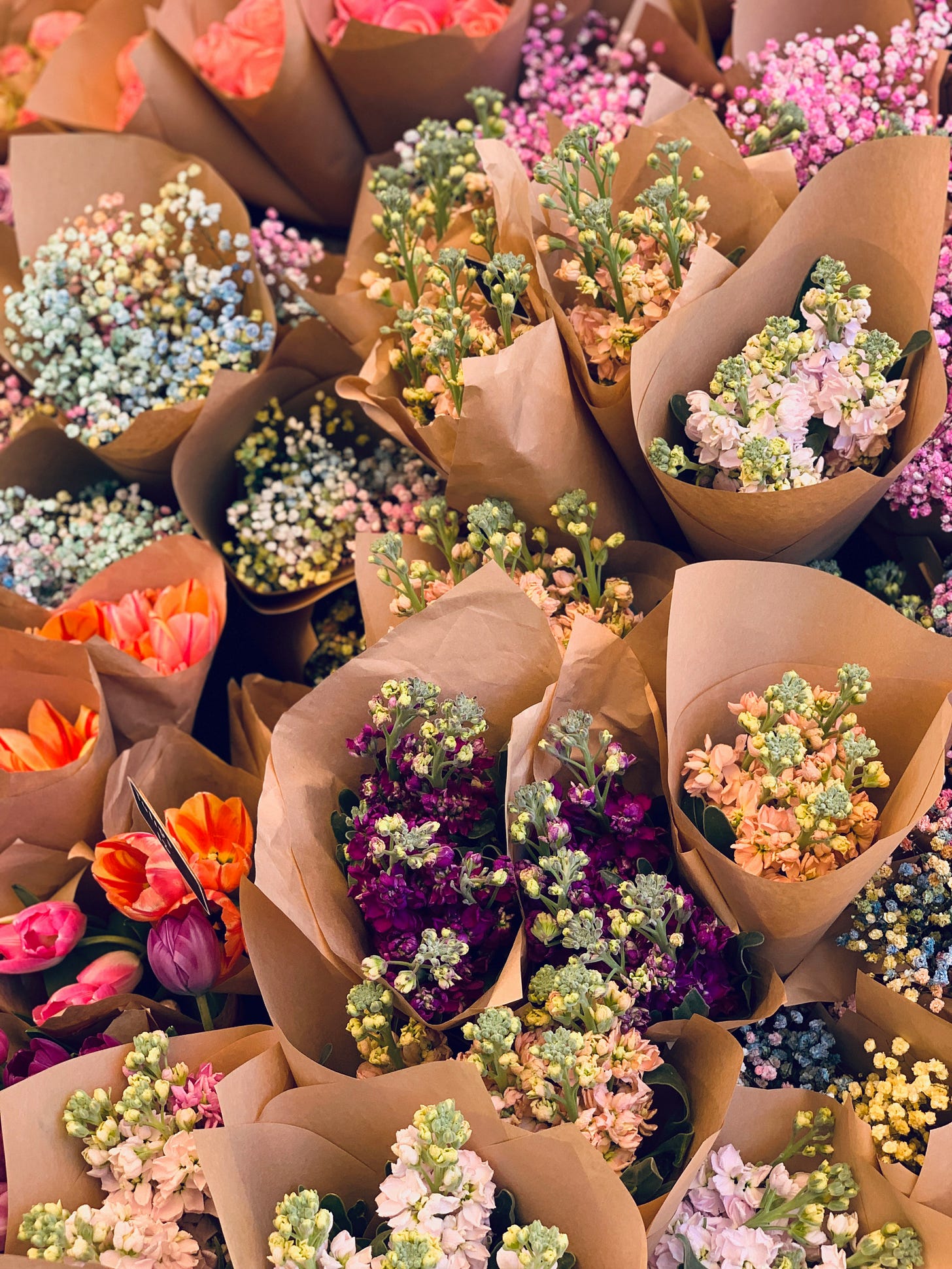Welcome to this week’s STILL… If you’re new here, please take a look around and say hi in the comments if you have a moment. I’d love to hear from you!
Whether you are new or old, the fact that you’ve chosen to spend your time here means a lot. I know you have lots of options out there, so THANKS!
As always, a special thanks to paying and founding members for the GIFT of your support. I welcome others to jump in since your financial contributions encourage and sustain my writing.

“The old life is gone; a new life emerges! Look at it!”
—2 Corinthians 5:17
*Heads up, this post contains references to sexual assault and suicide. The individual's name has been changed.
A couple weeks ago I sat in a circle of thirty people as Peggy, a petite elderly woman, shared the story of the worst day of her life, forty years ago.
This was no ordinary story. And it was no ordinary setting. Seated around the circle with Peggy were judicial officials, law school students, other victims of violent crime, and, mostly, “offenders”—incarcerated men, some of whom themselves had committed acts of violence. This strange mix of people were gathered inside the prison walls for a three-day restorative justice process, facilitated by Marquette University Law School’s Andrew Center for Restorative Justice. Inspired by the circle ritual practiced by indigenous communities in which a talking piece—a feather, rock, stick, or other object—is used to identify who has the right to speak while all others listen, restorative justice circles foster healing, create empathy, and facilitate the repair of harm rather than fixating on punishment and retribution.
It was a privilege to be in the circle, which I got to join thanks to collaborations with the Andrew Center over the past couple of years that have led to me teaching meditation in this prison (more on this soon).
As soon as I stepped into the room, I felt like I was standing on holy ground. And then, when Peggy began to share her story, the space became even more charged. With a loving power. With connectivity. It was a graced space.
We took turns wiping away the tears from our eyes as she talked about the horrific day and all that followed. How she was violently attacked and raped while she was out for a jog on the beach. And how this brutal experience altered the course of her life.
For many years the trauma from that day haunted her, affecting her marriage, her parenting—everything. Of course it did.
But then her story took a turn...
Some years after the attack, the pain was just too much for her to bear, so Peggy decided that she was going to end her life. She had written a letter to her husband and children. And she knew exactly how she was going to do it. Once it got really cold outside, she would return to the spot where it happened in the woods. Then she would walk over the sand dune that had hidden her attack from the sight of passersby, and wade out into the water. The hypothermia would take over from there. She was ready to go.
Until one day her therapist said to her, “You were his victim one day of your life. Don’t let him make you his victim every day of your life.” Receiving these words changed everything. Peggy realized she wanted to live—really live. She accessed something deep inside herself. She reclaimed her power.
Later she returned to the place in the woods, her suicide letter in hand. She tore it apart and scattered the pieces in the exact spot where for the longest time she thought her life had ended. Now, she realized something else had happened there: her life began.
She emerged from that place free and fierce. “Perhaps the greatest gift this experience has given me,” Peggy said, “is that it taught me to embrace my mortality. I don’t worry about the small stuff anymore.” Not only this, but her rebirth also came with the kind of courage and compassion that eventually brought her to this prison and countless others. Sharing her story. Bringing healing. Letting not only victims, but also offenders, know that they are not defined by the worst day of their lives.
For a while, even after she tore up the letter, Peggy still had a hard time with the anniversary date of the attack. When it rolled around every year, she didn’t really know what to do. Then a friend, who had also been a victim of a violent crime, told her, “I buy myself flowers every year on the date it happened. Because it’s not the anniversary of my death—I didn’t die! It is the anniversary of my new life.” The anniversary of the worst day of her life was transformed into a cause for celebration.
Since then, every year on the anniversary of her transformation into a force of love and restoration, Peggy now buys herself flowers.
That day in the circle it felt like she was buying flowers, too—beautiful flowers for all of us—hoping that no matter what we have done, no matter what has happened to us, that we would each know we are worthy of love and that a new beginning is possible.





stunning story. i find the moments in Council to be some of the most transformative. and teaching meditation to those experiencing incarceration is deeply inspiring work... proud to know you, dear Ben!